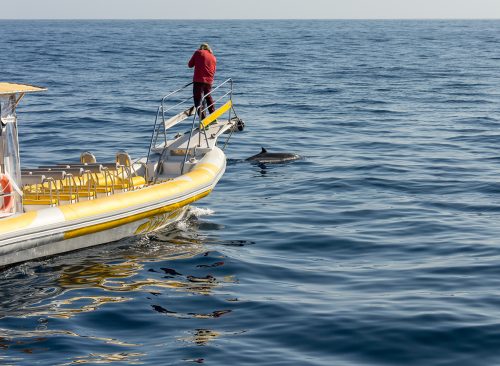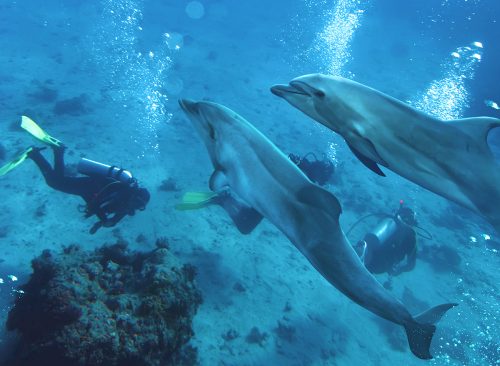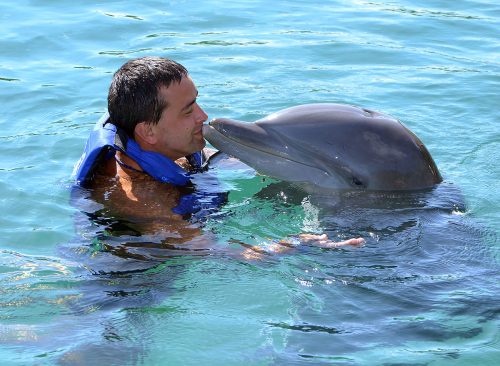
Scientists have long known that dolphins used individualized whistles to identify themselves and communicate with other members of their species. But a new study has found that communication is more individualized than previously thought. In a new study published in Frontiers in Marine Science, researchers analyzed more than 900 recordings of whistles from nearly 300 individual dolphins over four decades.
They found that dolphins develop a distinctive whistle early in life by listening to dolphins call out to their peers. Scientists observed a wide variety of whistles as the animals repeated portions in "loops" and altered pitch. "A signature whistle is often said to be similar to a name because it is individually distinct and serves to identify the animal," said Brittany Jones, a postdoctoral research fellow at the National Marine Mammal Foundation who wasn't part of this study. Read on to find out more.

To calculate the distinctiveness of the whistles and compare them to other species, the study's authors used a scale, Beecher's Information Statistic, to evaluate 21 different characteristics of a sound, including length, frequency, pitch and pattern. The more varied the calls, the higher the species scored. The researchers found that bottlenose dolphins' whistles had the widest range, followed by those of larks. (Scientists aren't yet sure how humans compare.)

Those 21 facets only hint at how complex dolphin whistles are, said study lead author Laela Sayigh, a marine biologist at the Woods Hole Oceanographic Institution. "It's actually kind of phenomenal," said Sayigh. "Dolphins are the most individually distinctive communicators."
University of South Bohemia behavioral ecologist Pavel Linhart, who led the interspecies comparison, told Scientific American he was glad the researchers quantified those differences. "I think because it was just so obvious that it's so easy to identify [individuals], they didn't quantify it before," he adds. Scientists aren't sure why dolphins vary their signature whistles. It could be to express varying emotions. "We're really in the infancy of understanding those, Sayigh said.

A different study published last May in the journal Scientific Reports found that dolphins in the Mediterranean Sea create signature whistles that best fit their local habitat. The scientists found that dolphins in smaller groups had whistles that changed pitch more often than dolphins in larger groups, and dolphins living in areas with more seagrass had signature whistles that are higher in pitch and shorter in length than those who live in areas where the seafloor is muddier.

In 2013, researchers found that dolphins imitate another's signature whistle to re-establish contact. Occasionally, they add parts of their signature whistle to their vocalization. And a 2018 study on male bottlenose dolphins found that they retain their signature whistles into adulthood just like females. It was previously thought males abandoned their signature whistle to adopt the same whistle as the groups they lived with.

Scientists also believe that dolphins are capable of long-term social recognition, like humans and elephants. The animals can remember other dolphins after 20 or more years since their last contact, solely by their whistles, Jason Bruck, an assistant professor at Stephen F. Austin State University, told NBC News. (They also identify each other through urine.)
"At this point, we can say with some confidence that dolphins have at least two modes of social identification between signature whistles and urine cues," said Bruck. "Dolphins are excellent whistle mimics if they want to be, so urine might be more resistant to cetacean identity theft, though deception in signature whistles remains understudied."














